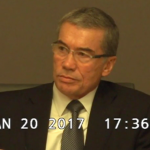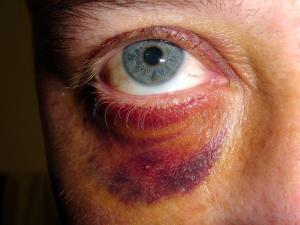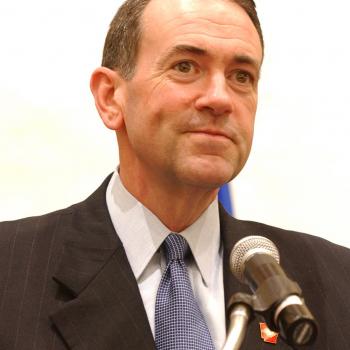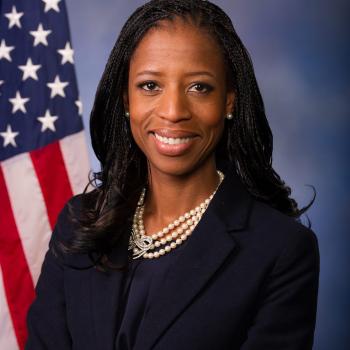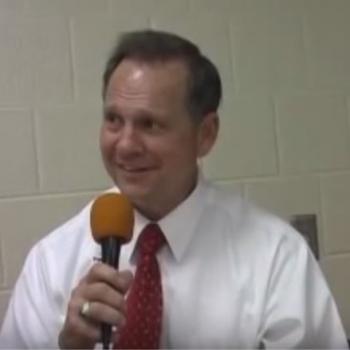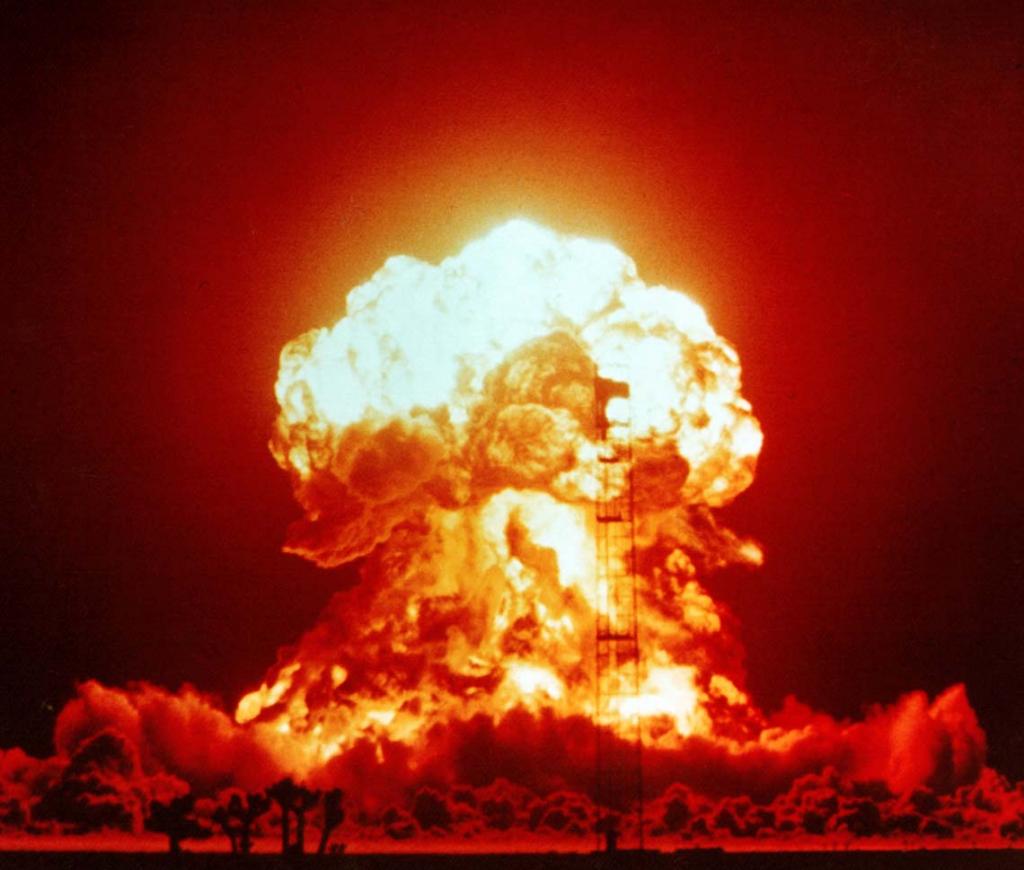
The Donald was in a “bellicose mood.”
That might explain what he did next. During a news conference in Bedminster, NJ, he pledged that if North Korea threatened the U.S. again, they would “be met with fire and fury like the world has never seen.” Some thought this meant Trump was advocating for the use of nuclear weapons against the Hermit Kingdom. North Korea, for its part, seemed to take Trump’s rhetoric seriously, subsequently stating that it was considering a strike against the U.S. territory of Guam.
Although U.S. officials like Rex Tillerson later tried to decrease tensions by walking back President Trump’s statement, the specter of nuclear confrontation got me thinking about Mormon views of nuclear weapons, especially given statements by a prominent evangelical leader that seemed to welcome such a conflict. Specifically, I was reminded of a talk by J. Reuben Clark, First Counselor in the First Presidency, in the October 1946 General Conference, a talk in which he addressed the U.S. bombings of Hiroshima and Nagasaki.
For some background, Clark was no stranger to matters of war and peace. He worked as an attorney in the State Department, served as an Army JAG officer during World War I, and would go on to serve as Undersecretary of State and U.S. Ambassador to Mexico. While at the State Department, he authored a memo questioning the propriety of U.S. military intrusions in South America. In the 1920s, he served on an arbitral panel that some credit with helping avert war with Mexico.
So in 1946, as Clark approached the podium in the Salt Lake Tabernacle, he did so not as some sort of foreign policy naïf, but as a seasoned statesman who knew his way around matters of diplomacy. This distinguished background would only serve to make his comments that much more remarkable.
The previous August, mankind had witnessed the first use of nuclear weapons. Under the orders of President Harry Truman, U.S. forces dropped atomic bombs on the Japanese cities of Hiroshima and Nagasaki, despite Truman’s having ordered they only be used against purely military targets. The results of these bombings were devastating – around a quarter million Japanese men, women, and children, many of them innocent civilians, were killed. And the consequences weren’t just immediate – in subsequent years, survivors of the bombings experienced higher rates of cancer and other radiation-linked diseases, while mothers who had endured the blasts witnessed increased numbers of miscarriages and birth defects.
The horrible extent of atomic destruction must have weighed especially heavy on President Clark’s mind – in earlier years, he had worked closely with the pre-war government of Japan to combat anti-Japanese discrimination in California, and his efforts were so exemplary that the Japanese offered him a post, which he refused, in the Imperial Palace. This personal connection of Clark’s was clearly felt as he described the trauma of nuclear cataclysm:
“[A]s the crowning savagery of the war, we Americans wiped out hundreds of thousands of civilian population with the atom bomb in Japan, few if any of the ordinary civilians being any more responsible for the war than were we, and perhaps most of them no more aiding Japan in the war than we were aiding America. Military men are now saying that the atom bomb was a mistake. It was more than that: it was a world tragedy. . . And the worst of this atomic bomb tragedy is not that not only did the people of the United States not rise up in protest against this savagery, not only did it not shock us to read of this wholesale destruction of men, women, and children, and cripples, but that it actually drew from the nation at large a general approval of this fiendish butchery.”
Clark’s comments were damning. Not only had America inflicted a crime against the humanity of the Japanese people, but its people had celebrated that barbarity. He went on to suggest that the inspiration for nuclear weapons was satanic in origin, and solemnly declared that “God will not forgive us” for developing weapons of mass destruction. Further, he asserted that America’s actions had undermined centuries of advances in the laws of war.
Around 30 years after Clark’s conference address, Mormon leaders would take another fiercely anti-nuclear stance. At question was the proposed deployment of MX Peacekeeper missiles in Utah and Nevada. In a statement arguing against the move, the Church’s highest leadership thundered, “We deplore in particular the building of vast arsenals of nuclear weaponry” and went on to warn that “history indicates that men have seldom created armaments that eventually were not put to use.”
LDS Church leaders have consistently expressed skepticism, if not condemnation, regarding the use of nuclear weapons. And though Church members have often been at odds with their leadership on nuclear issues (as they initially were in regards to the MX missiles), let’s hope that they heed the previous counsel of the Brethren and lobby lawmakers, and the Trump Administration, to tone down the rhetoric on the North Korean crisis.

